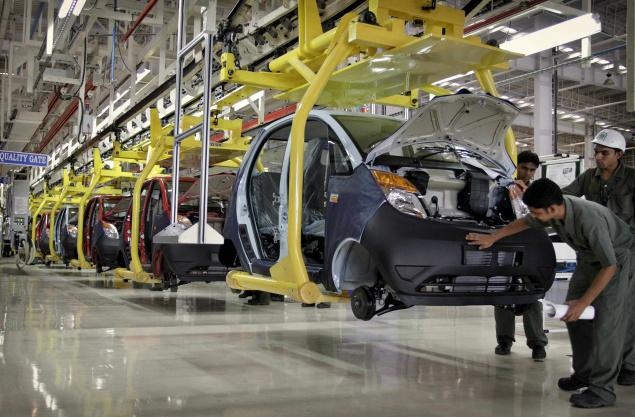27 July, 2021In an online meeting held on 23 July, IndustriALL Global Union auto affiliates expressed concern that the Covid-19 pandemic has exacerbated attacks on workers’ rights, undermining social dialogue and union rights. They called for joint action to strengthen union power.
The meeting assessed technological transformation in the automobile industry and the impact of the Covid-19 pandemic on workers’ rights. The Indian automobile industry faced a double blow as poor economic growth was already affecting industry sales before the sharp increase in Covid-19 cases when the second wave hit India in April and May 2021. While the general lockdown was observed by provincial governments, many manufacturers were allowed to operate, and tier one suppliers operated their factories.
Continuing to work regularly at automobile plants risked workers’ lives and many workers suffered infections. In many auto plants, workers launched protests to call for shutdowns and improved Covid-19 safety measures on the shop floor. Many companies used the pandemic to deny wage increases agreed in the collective bargaining agreement. Some companies reduced workers’ wages, claiming that the company is facing losses.
A large number of contract workers, apprentices and trainees were relieved from work and not paid their wages for the days when companies were closed due to the pandemic. Many lost their jobs and returned to their home towns. When companies resumed work after lockdown, they retrenched contract workers who had worked in the company for a long time and hired new, young contract workers on low wages. The National Employability Enhancement Mission (NEEM) is used as a pretext to use students for cheap labour in the auto industries. Auto companies across the country have almost stopped recruiting regular employees.
Georg Leutert, IndustriALL automotive director, said:
“The technological transformation towards building emission-free battery run, autonomous and connected vehicles in the automobile industry across the world is happening rapidly. The trends suggest that auto workers will face imminent threats of job losses in the near future. The pandemic seem to have accelerated this process with implications for workers’ rights. It is important that unions prepare for this transition, build international solidarity and strengthen union power to defend workers’ rights.”
Apoorva Kaiwar, IndustriALL South Asia regional secretary, said:
“During the pandemic health and safety has become a key area of concern for auto unions in India. Covid-appropriate standard operating procedures should be followed to safeguard workers. The economic slowdown has already affected industry deeply. The government and employers should ensure that the negative impacts of the economy and the pandemic are not used as excuse to trampling upon workers’ rights. Trade unions need to work together and evolve collective strategies.”
The meeting saw participation from IndustriALL affiliate union representatives of Bosch, TATA motors, Ashok Leyland, Tenneco, SEG and other automotive first tier suppliers.
Picture: Tata Nano factory. CC El Auto Perfecto
